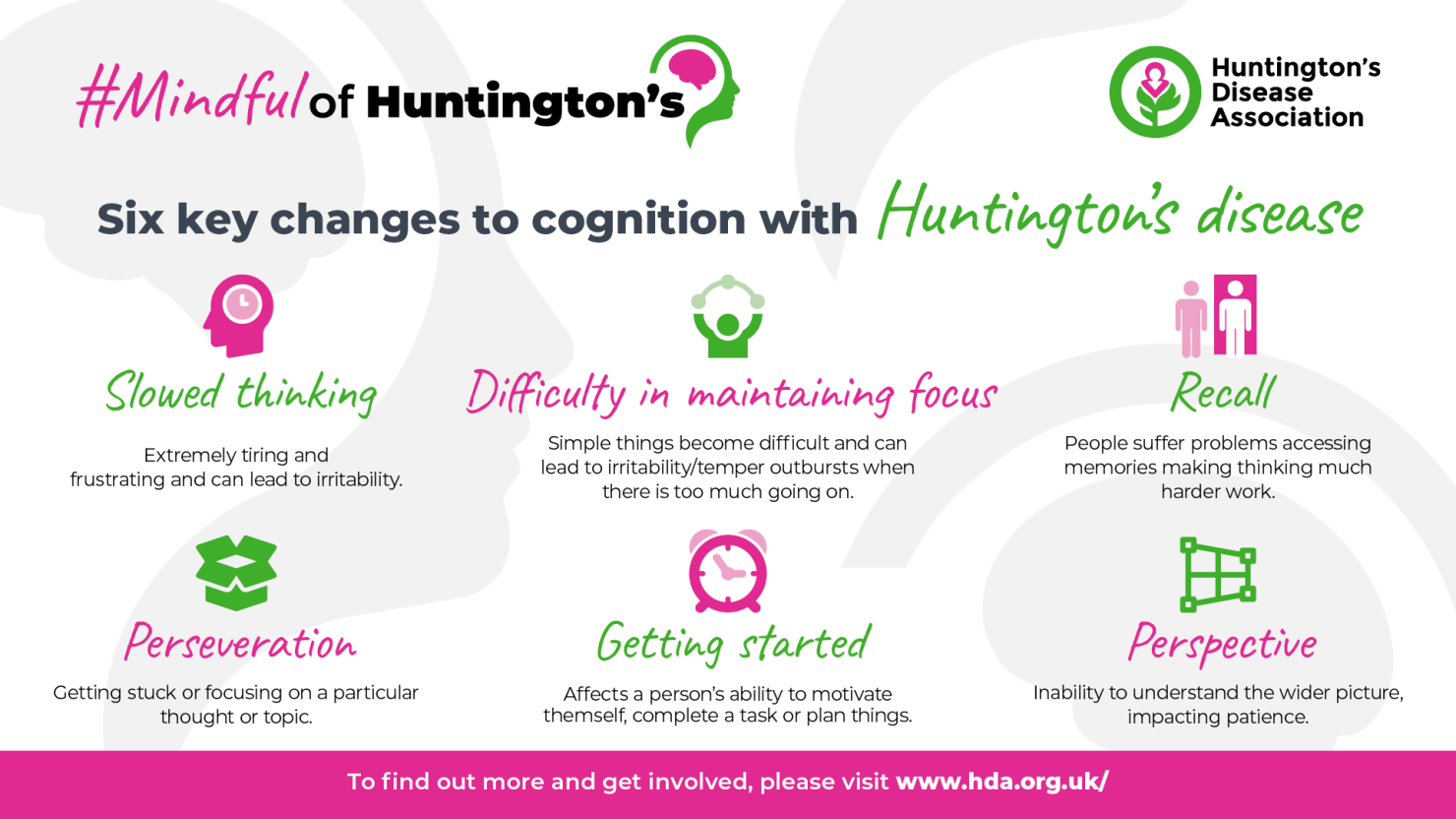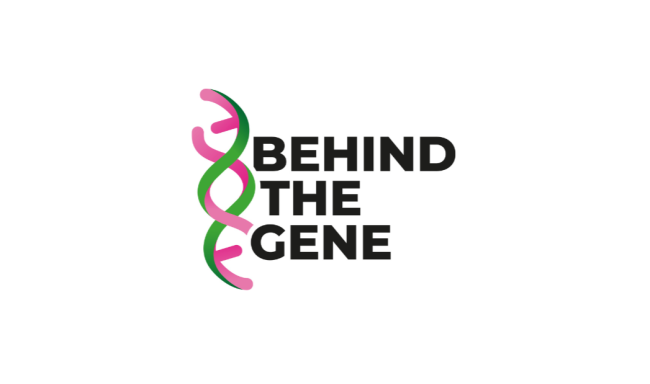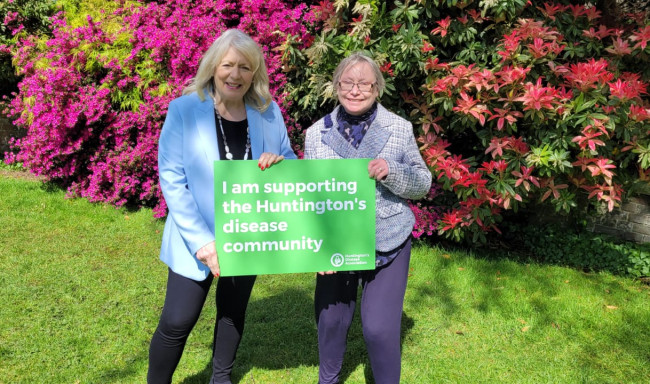Many people see Huntington's disease as a movement disorder and often the 'non-physical' symptoms are the ones that get overlooked because some of the changes earlier in the illness can be quite subtle at first.
Cognition refers to the mental processes including attention, remembering, producing and understanding language, solving problems and making decisions. It is significant that the frontal lobe is affected in Huntington’s. This has responsibility for organising, prioritising, controlling impulses, monitoring self awareness, motivation, finishing tasks, creative thinking and problem solving. This can lead to a variety of challenges when treating someone with Huntington’s. They may not have an awareness that they have a difficulty in a particular area, and perceive that they are managing well, when in fact this is not the case.

Below are some of the symptoms that you or the person you care about may start to notice.
- Difficulty in switching attention
- Slowed thinking
- Inability to concentrate on more than one thing at a time
- Delayed processing skills
- Loss of drive, initiative and spontaneity
- Problems with recognition and recall
- Impulsive behaviour
- Inability to read facial expression
- Impaired executive functioning
Who can help?
There are lots of different people who are helpful at this stage of your Huntington's journey including the Huntington's Disease Association and your GP.
- Psychologist
- Counsellor
- Neuropsychologist
- Psychiatrist
- Specialist Huntington's service
- Social care
Symptom management
There are numerous ways to help with the symptoms for both the person with Huntington's disease and for carers.
- Medication
- Cognitive Behavioural Therapy (CBT)
- Support worker/care package
- Aide memories
- Alarms
- Complementary Therapies
- De-escalation techniques
Impact on carers and family members
The impact of living with someone who has cognitive impairment can be really difficult for carers, partners and family members especially when trying to seek help when the person doesn't think there is anything wrong with them. Intervention from specialists is key but sometimes very difficult if the person refuses help or passes certain cognitive tests. This is why it's so important for specialists to understand the tell-tale signs of someone with Huntington's disease so that the right help can be offered at the right time. This is what we are campaigning for.
A family member said:
“People with Huntington’s disease have this very deeply entrenched denial or lack of awareness of the impact of their own behaviour and the impact of their own illness on some people. I've certainly got two or three friends at our local branch whose husbands, even though they're in care, even though they're incontinent, still don't think there's anything wrong with them.”
Download the 'cognitive changes' graphic
Download the 'eating and drinking' graphic







